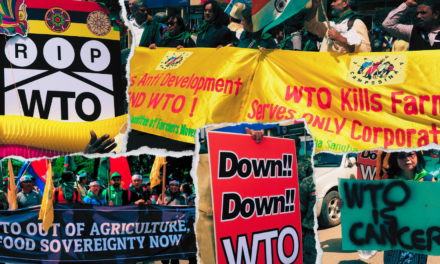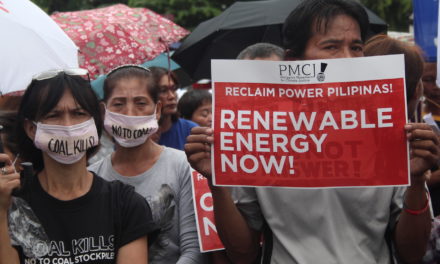Statement released by EU-ASEAN FTA Network-Philippines
PNOY Administration’s Insensitivity to Plight of the Poor Is Endless: DATA EXCLUSIVITY to FOREIGN PHARMA FIRMS NOT “DAANG MATUWID”
The Aquino Administration has shown once again its bias in favor of multinational companies over the peoples’ interest. There are reports that Pnoy government, through the Intellectual Property Office of the Philippines (IPOPhil) and the Food and Drugs Administration (FDA) are now considering giving data exclusivity rights to foreign pharmaceutical companies, which will result in sharply increasing the prices of medicines at the expense of the poor.
It has come to the attention of the Network that the IPOPhil and the FDA are working on a revision of the implementing rules to the Universally Accessible and Cheap Medicines Act or Republic Act 9502, to broaden the scope of data protection from unfair commercial use.
The draft amendments to the IRR of the law being considered are misguided for the following reasons:
• Data protection from unfair commercial use does not give rise to any rights for data exclusivity to originator companies on their research data pending approval in the FDA
The protection of data from unfair commercial use is a separate and distinct concept from data exclusivity that seeks to grant protection to originator companies who may have submitted data to the drug regulatory agency to secure marketing approval. What is meant by unfair commercial use and questions related thereto are alien to or are not items for consideration when the drug regulatory agency such as the FDA reviews and approves drugs for the market. In effect, when the concept of data protection from unfair commercial use is now expanded to include data exclusivity during drug regulatory approvals, then the scope of what is unfair commercial use is being broadened unnecessarily.
• Marketing approvals are a different matter altogether from patent rights thus when data exclusivity rules are included in the process for drug regulatory approvals, the FDA are effectively tasked to deal with extensions of patent rights. The FDA is only mandated to deal with drug safety and efficacy.
What is contemplated in the provision of the TRIPS Agreement on Article 39.3 does not have anything to do with the granting of patent rights, as in fact, section 7 (Protection of Undisclosed Information) on which Article 39.3 belongs to, is different from where patents are, which is section 5. This means that what is dealt with by Article 39.3, which is marketing approvals, is a different matter altogether from patent rights. Data exclusivity works to effectively extend the term of the patent, thus benefiting the holders of patent rights. This is not what the drug regulatory agency the FDA is supposed to do as they only deal with drug safety and efficacy.
• The IPOPhil reneges on its mandate under the law if it pushes for TRIPS-plus amendments that are not authorized even in the TRIPS Agreement
The IPOPhil clearly prioritizes the rights of private companies at the expense of the Filipino people in its drive towards the institutionalization of data exclusivity on the rules relating to data protection from unfair commercial use. Data exclusivity is not provided in the TRIPS Agreement. That is why it is called TRIPS-plus, though there are various FTAs already where they are the norm, like the EU-South Korea FTA, which is written in this manner:
For that purpose, the Parties shall ensure in their respective legislation that data, as referred to in Article 39 of the TRIPS Agreement, concerning safety and efficacy, submitted for the first time by an applicant to obtain a marketing authorization for a new pharmaceutical product in the territory of the respective Parties, is not used for granting another marketing authorization for a pharmaceutical product, unless proof of the explicit consent of the marketing authorization holder to use these data is provided.
The Network calls on the IPOPhil and the FDA to throw away their draft amendments and focus instead in the implementation of the law and enabling Filipino generic drug manufacturers maximize the various TRIPS-flexibilities provided for in the Cheap Medicines Act.
The Network also calls on Pnoy to show to the Filipino people you care, give clear attention to ordinary Filipino citizens, don’t prioritize private foreign companies who are already rich, make money out of the misery of sick Filipino people who have no option but to buy medicines when they are sick!
Contact Persons:
Atty. Elpidio Peria- [email protected]
Joseph Purugganan- [email protected]









